Installation of the first Flatpack Modular Tank in the Marshall Islands
June 8, 2023
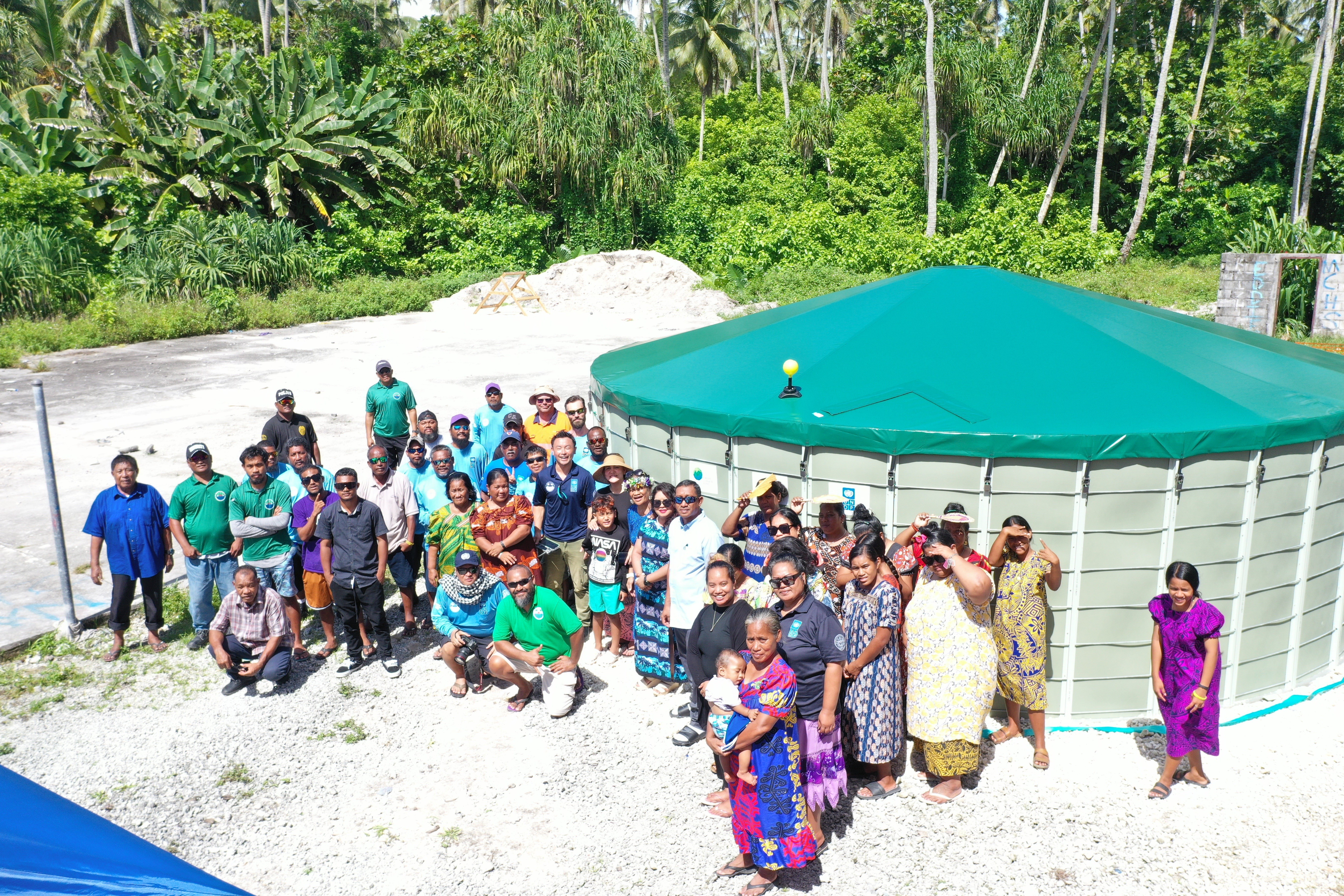
Rongrong community and RMI EPA staffs pose with the ACWA Team in front of the newly completed Flatpack modular tank
The United Nations Development Programme (UNDP) through the Addressing Climate Vulnerability in the Water Sector (ACWA) Project in the Marshall Islands has installed the first ever Flatpack modular tank at Rongrong island, located within the Majuro atoll, as part of their capacity development training in/on the installation of a 14,790 US Gallon (56,000L) Kliptank Modular Tank adjacent to the Rongrong High School Boys Dormitory. Flatpack modular tanks are the modern alternatives to plastic tanks and are considered to be the most suitable option for the large-scale installation of new Rainwater Harvesting Systems (RWHS) in all the 24 Atolls and Islands throughout RMI.
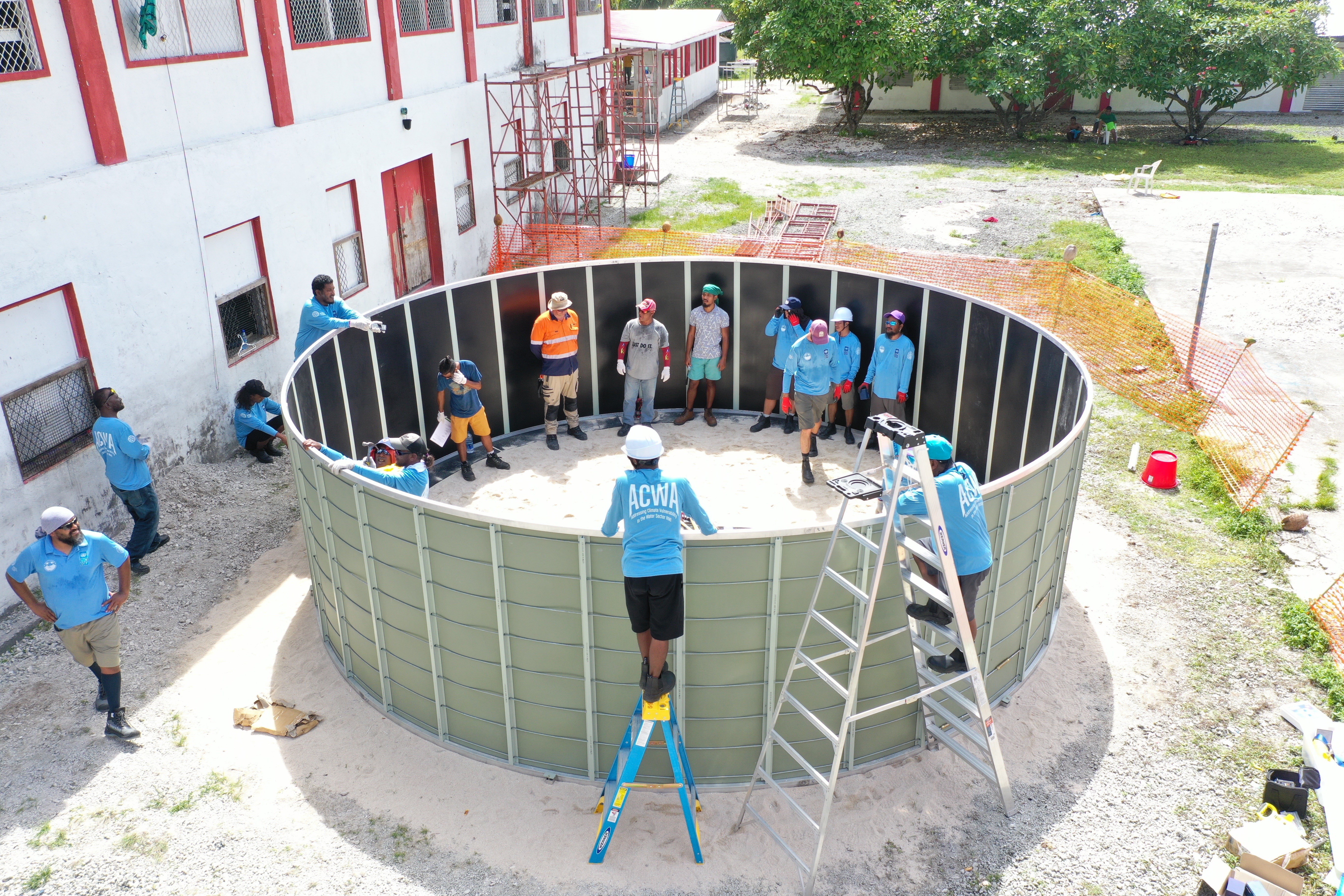
The tank under installation/construction by the ACWA Team
The Flatpack modular tank option was selected for its durability, ease and speed of installation, high life expectancy, high portable water quality feature and ease of transportability. Shipping of large tanks to small communities in the neighboring Atolls and islands is a major constraint for other water tank types as the (factory fitted) materials need to be offloaded on to smaller boats due to a lack of wharf infrastructure. Flatpack tanks have the advantage of being able to be dismantled for transportation and re-assembled again at the identified installation site.
For this highly anticipated (flatpack) tank installation training programme at Rongrong island, the ACWA project invited Mr. Jon Blunn, an expert technician from the supplier Kliptank to conduct a four-day intensive hands-on training to the ACWA project’s technical team comprising Field Engineers, Field Engineer Associates, Area Coordinators and Site Coordinators; government technical staffs from the Environmental Protection Authority (EPA) as well as the Public School System (PSS).
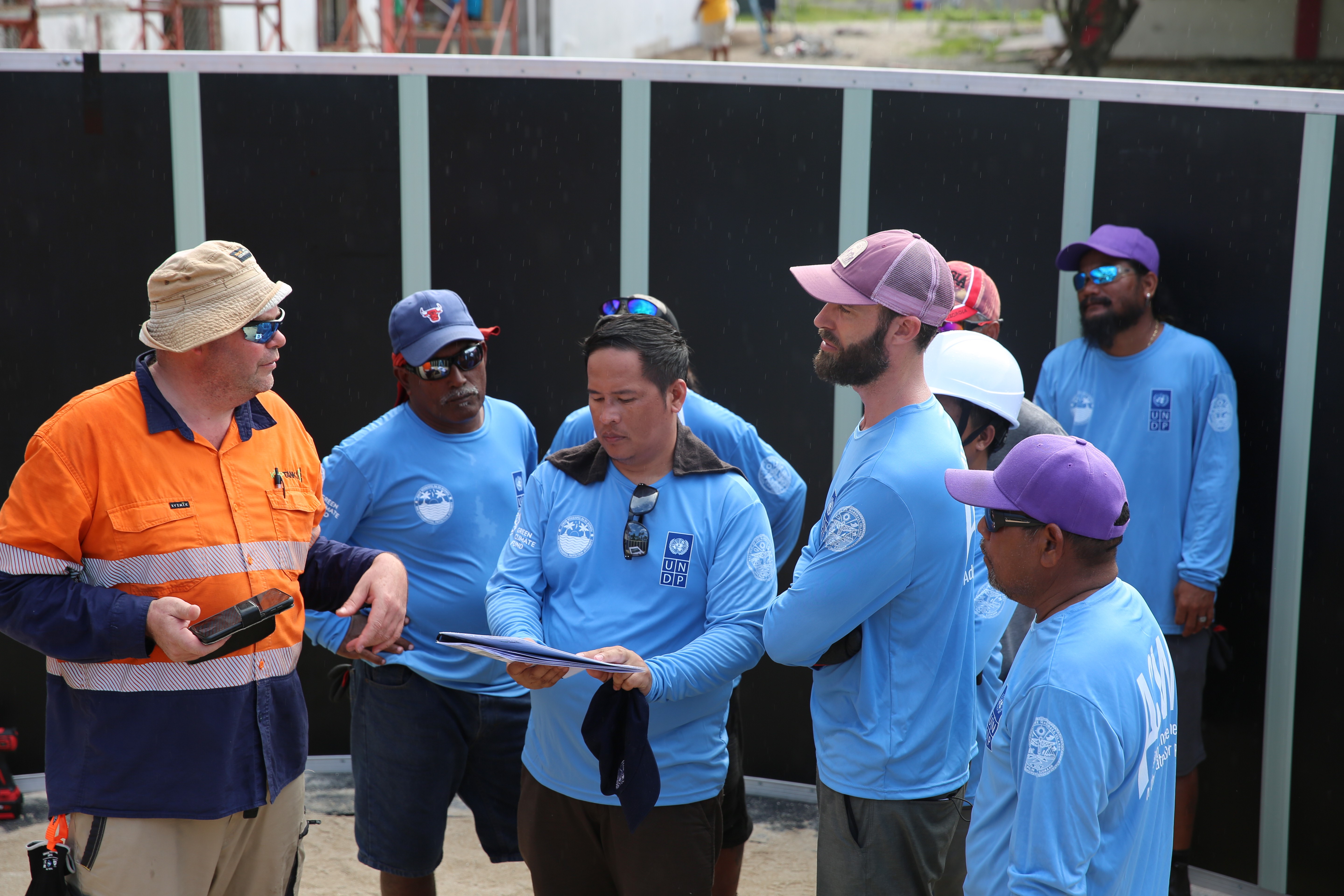
Kliptank Expert Jon Blunn sharing a few tips and techniques with the ACWA Team
The training was held at Rongrong Island, located within a 20min boat ride from Majuro. At the end of the training, Kliptank expert, Jon Blunn stated, “This Flatpack tank installation on Rongrong Island being the first of its kind for RMI, was classically carried out in a dexterous fashion and fully completed well ahead of the scheduled timeline. The Field Engineer associates, supported by the Field Engineers, were extremely diligent in terms of health and safety at the installation training and produced a very good outcome at the end.”
“It was a pleasure to work with the ACWA team, all of whom seemed keen and eager to learn. It was evident that once each construction method was explained using the installation manual and then practically demonstrated, they quickly grasped the process including the technique. I have full confidence that they will be able to comfortably install similar Flatpack tanks in all other targeted communities across RMI" Jon added.
A commemoration ceremony, hosted at the training site by the Government of RMI and UNDP was attended by Honorable Councilwoman Ms. Betty Imaiakta, EPA General Manager Ms. Philip Moriana, ACWA Project Manager, Mr. Koji Kumamaru, Rongrong community, Rongrong School Principal, EPA and PSS technical teams and the ACWA project staffs.
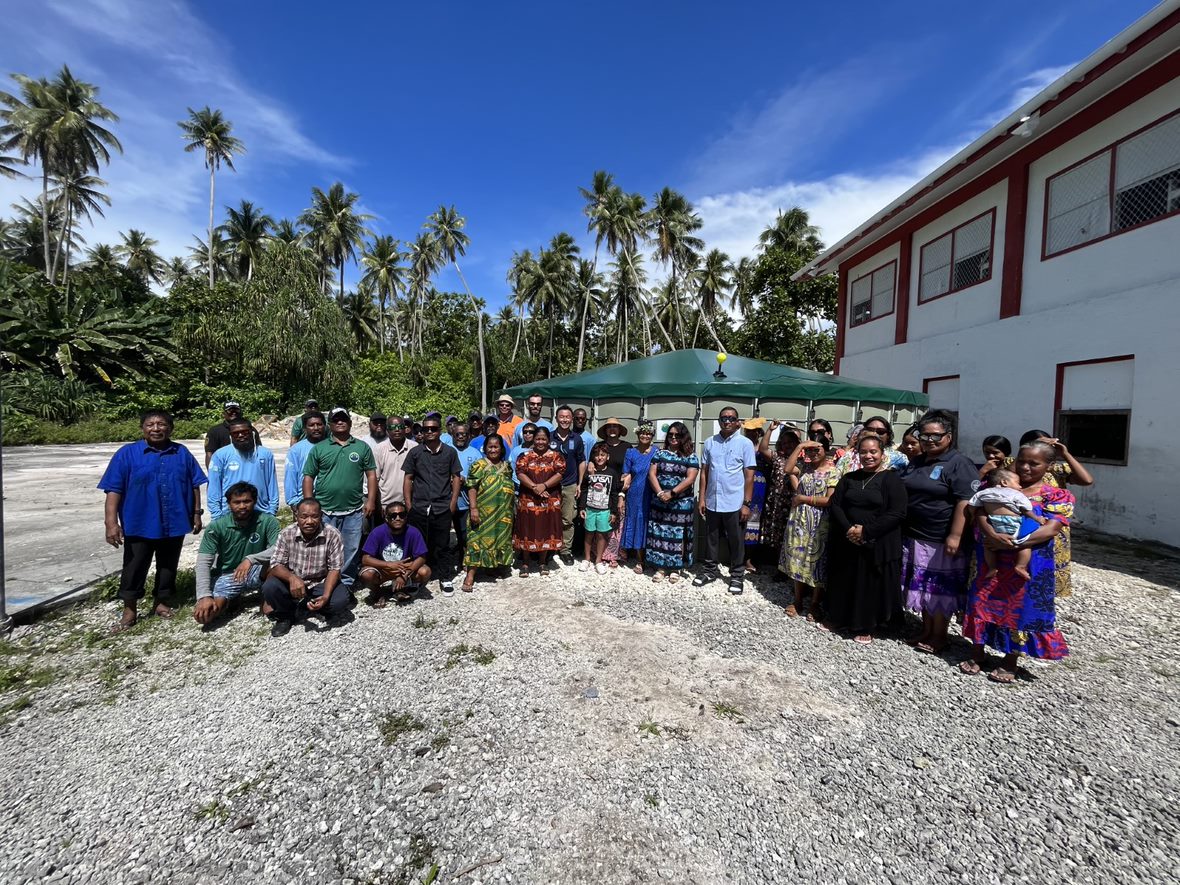
Posing after the tank commemoration ceremony
In his remarks, UNDP ACWA Project Manager Koji Kumamaru expressed his appreciation to the Government of Marshall Islands for their excellent leadership and support in effectively addressing climate vulnerability in the RMI water sector.
“This, remarkably, is the first ever installation of Flatpack modular tanks in the Marshall Islands. In the next few years, a considerable number of Flatpack modular tanks will be installed across the 24 neighboring Atolls and Islands whilst upgrading of the household and community rainwater harvesting systems. In the ACWA Project, we may foresee and anticipate several challenges, however, we can undoubtedly break through working together”, affirmed Koji.
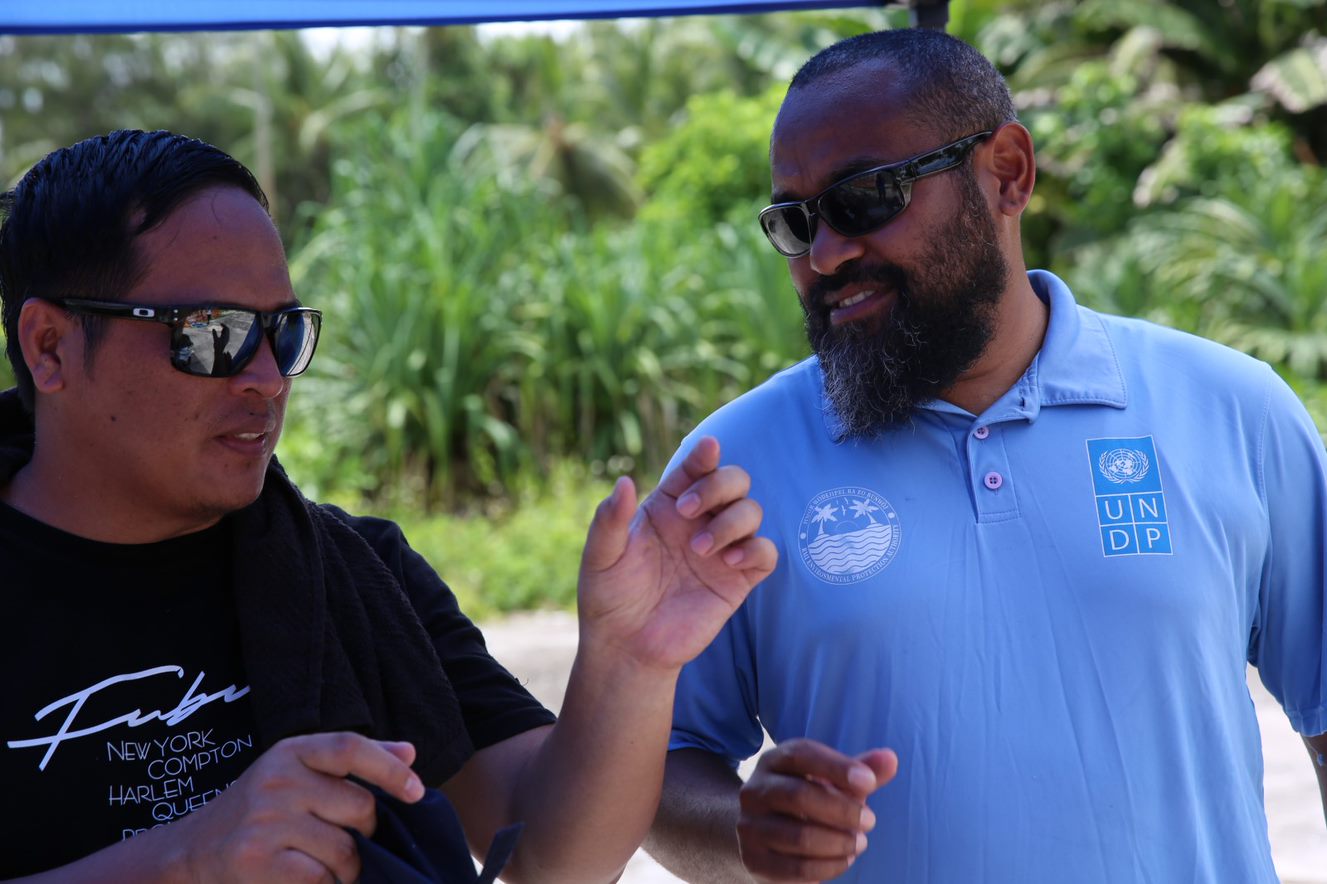
ACWA team discussing the installation protocol
ACWA project is funded by Green Climate Fund (GCF) and Government of RMI with $US24,747,308 across 7 years from 2020 until 2027 to improve household and community rainwater harvesting and storage structures and to increase resilience of water supply in all RMI’s 24 neighboring Atolls and Islands.
For more information:
Koji Kumamaru (Ph.D), ACWA Project Manager, UNDP; email: koji.kumamaru@undp.org

 Locations
Locations



